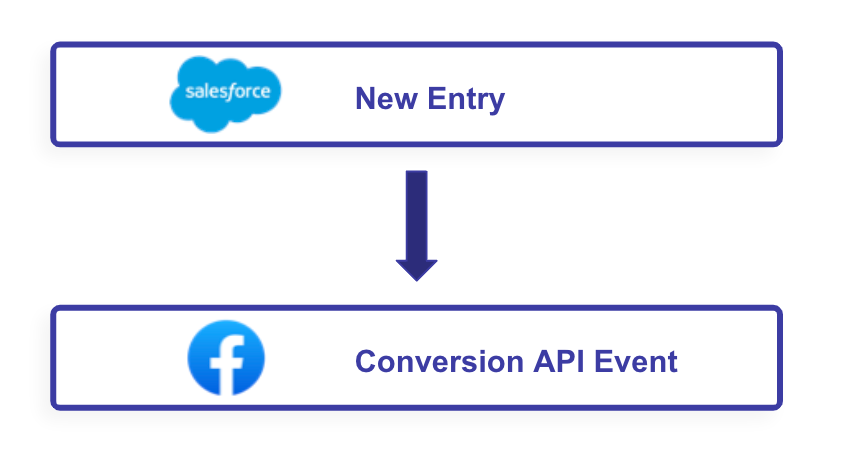by Ana Bedoya
At Jump, we are technology-agnostic and will deploy the best possible tools to solve the specific challenges and needs of all our clients.
An application that we like to use is Zapier, which is a tool that helps you automate repetitive tasks between two or more apps—no code necessary.
- On average, Zapier customers save 10+ hours of work per week
- For a client, this automation tool helped reduce CPA by 60%
Background:
- With cookies set to be deprecated some time in 2023, the future of tracking will be using a ‘Conversion API’. Here, a user’s on-site actions would be stored on a web server managed by the site operator. The actions will then be sent to Facebook as a server event.
- The Conversions API is designed to create a direct and reliable connection between marketing data (such as website events and offline conversions) from your server, website platform or CRM to Meta.
The Hack:

Using Zapier, you are able to set up an integration where a Conversions API event is sent to Facebook when there is a new entry in a company’s CRM. The data can be sent to FB as if it were receiving events from a web server. It’s a step further down the funnel rather than typical conversion API integrations because you’re syncing the data directly from the back end.
The Advantages:
- Data Integrity - A server event is still vulnerable to glitches and fraud. With many pixel setups, events fire when a user clicks rather than after a purchase or lead successfully goes through. By sending data straight from the back-end, you’re able to filter out bad leads or fraud purchases and only send verified events.
- Data Aggregation - Allows you to sync together online and offline events into the same data set, ex: if you have a client where some of their sales come through online and offline you can now pool those together into a single purchase event. We apply this approach to all forms of creative (short, medium and long form) as short form consumers may require a different hook than long form consumers.
- Substituting a Pixel - If unable to get the pixel placed on-site, or having problems getting a pixel event to fire, you can send the lead or purchase as a ‘server only’ event. As long as the event is sent within the time frame you are optimizing for on Facebook, and Facebook is able to match the email you are sending with the event back to a FB user, Facebook will be able to attribute events normally.
